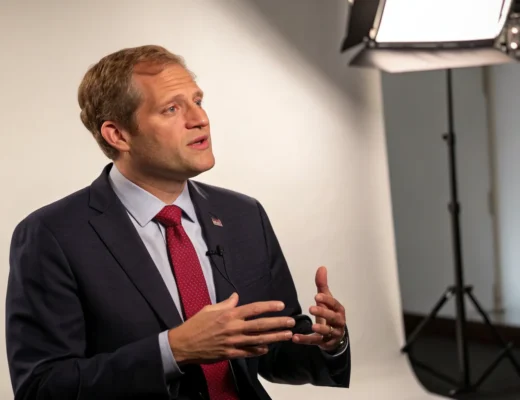Warren Buffett revealed that Greg Abel, his designated successor at Berkshire Hathaway, has communicated the company’s dissatisfaction with Kraft Heinz’s performance. This rare glimpse into internal communications highlights the active management role Abel is taking as he prepares to eventually lead one of the world’s largest conglomerates.
Berkshire Hathaway, which owns a significant stake in Kraft Heinz alongside private equity firm 3G Capital, has seen mixed results from this major investment in recent years. The food giant has struggled with changing consumer preferences, brand value write-downs, and competitive pressures in the packaged food industry.
Abel’s Growing Leadership Role
The revelation that Abel directly expressed concerns to Kraft Heinz management signals his increasing authority within Berkshire’s portfolio companies. As Buffett’s chosen successor, Abel currently serves as vice chairman overseeing all non-insurance operations at Berkshire Hathaway.
Industry analysts view this intervention as part of Abel’s gradual assumption of more responsibility in managing Berkshire’s diverse holdings. “This shows Abel is already taking an active role in addressing underperforming investments,” said a financial analyst familiar with Berkshire’s operations.
Abel’s background in the energy sector, where he previously led Berkshire Hathaway Energy, has given him experience in operational management that appears to be extending to other portfolio companies.
Kraft Heinz Challenges
Berkshire’s disappointment stems from several factors affecting Kraft Heinz’s performance:
- Declining market share in key product categories
- Difficulties adapting to changing consumer preferences toward fresher, less processed foods
- Previous write-downs of major brand values
- Margin pressures from increased competition and rising input costs
Kraft Heinz, formed through a 2015 merger orchestrated partly by Berkshire Hathaway and 3G Capital, has faced significant challenges since its formation. The company’s stock has underperformed the broader market, creating pressure for strategic changes.
“We expect better results,” Buffett reportedly told shareholders, explaining why Abel had been tasked with communicating their concerns directly to Kraft Heinz leadership.
Buffett’s Succession Planning
The disclosure about Abel’s interaction with Kraft Heinz provides rare insight into Buffett’s succession planning in action. Buffett, now in his 90s, has been gradually delegating more responsibility to key lieutenants, with Abel positioned as the eventual CEO.
Berkshire shareholders have closely watched for signs of how leadership transition might affect the company’s investment approach and management of existing holdings. This direct intervention suggests continuity in Berkshire’s hands-on approach with major investments when performance falters.
Financial experts note that Abel appears to be maintaining Buffett’s practice of giving operating companies significant autonomy while stepping in when results don’t meet expectations.
The conversation between Abel and Kraft Heinz executives demonstrates that Berkshire remains actively engaged with its portfolio companies despite its reputation for hands-off management. It also indicates that Abel is willing to have difficult conversations with leadership teams when necessary.
As Buffett continues to prepare for eventual leadership transition, Abel’s growing role in managing relationships with key investments like Kraft Heinz will be closely watched by investors and analysts for clues about Berkshire’s future direction.







